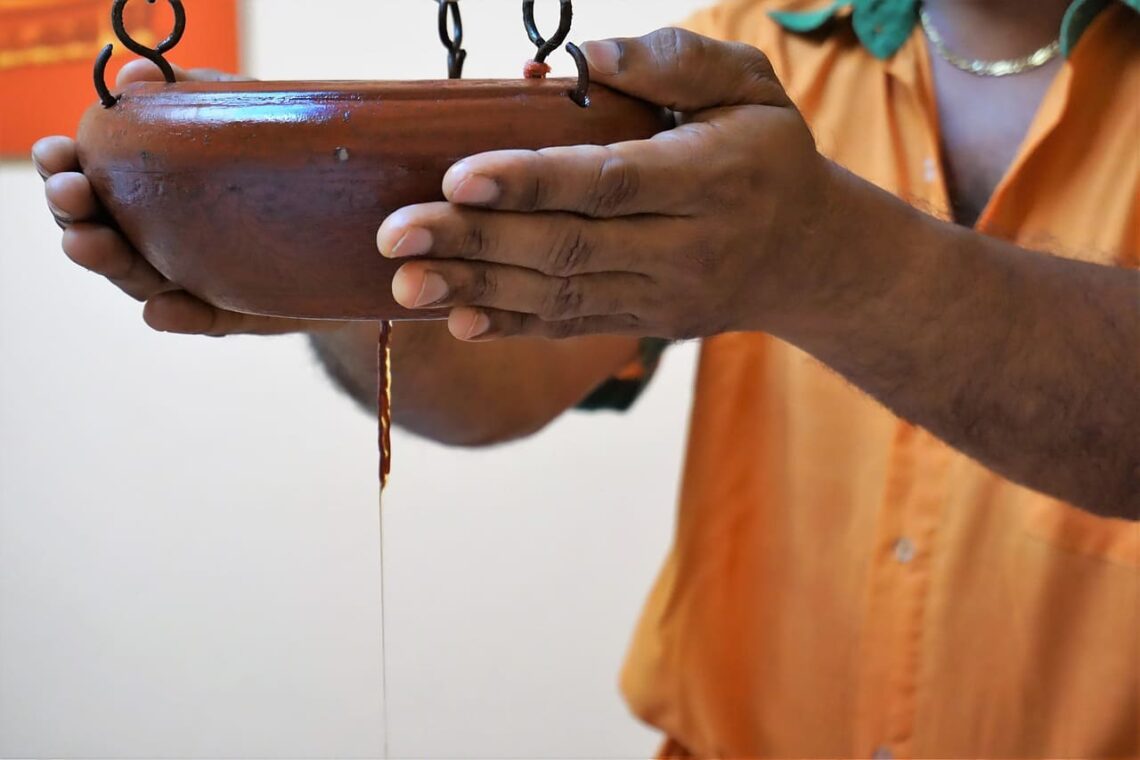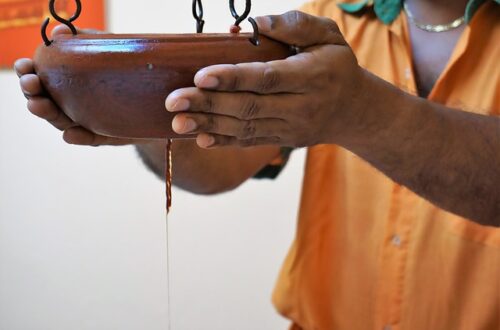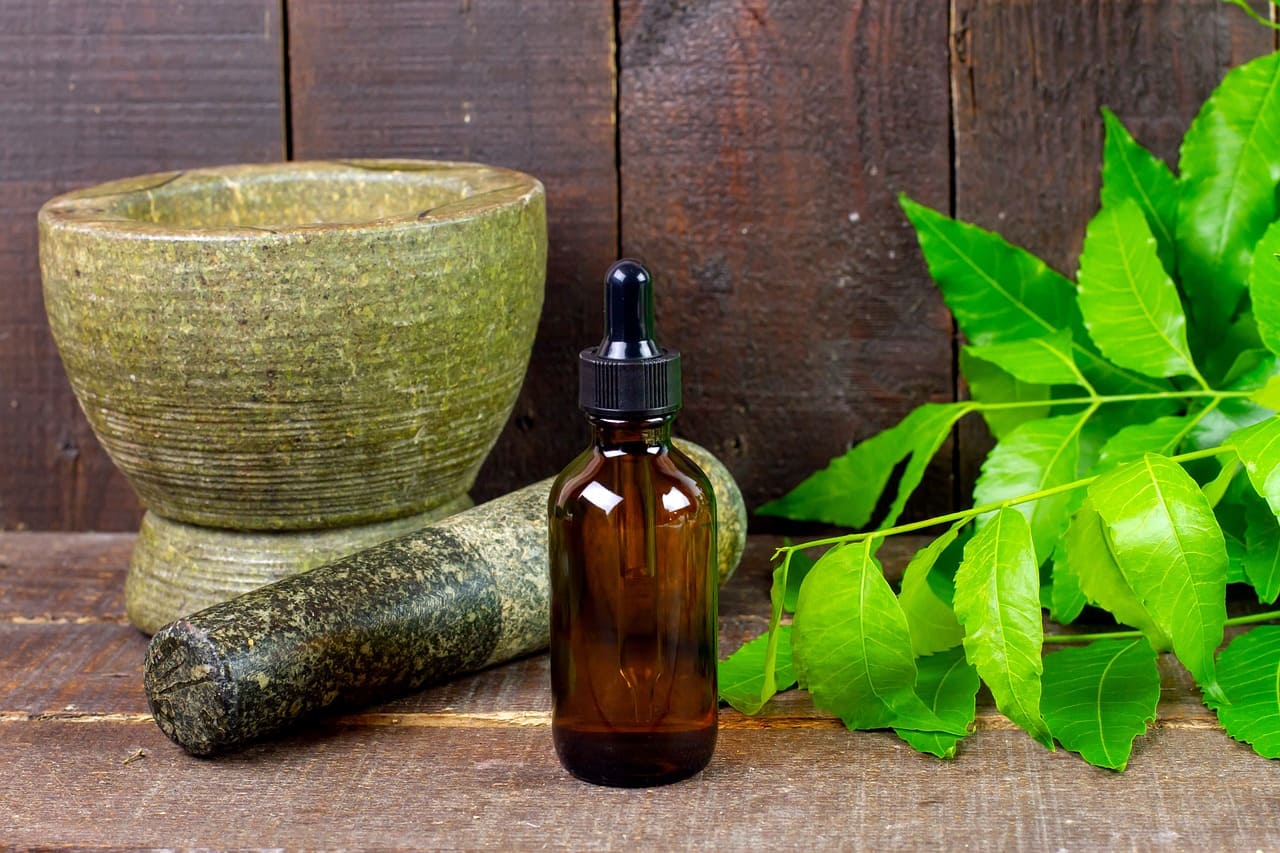
Ayurveda: Holistic Health Tips and Remedies
In a world filled with quick fixes, we often find ourselves seeking quick fixes for common ailments. A pill for this, a prescription for that—our medicine cabinets are filled with solutions that often come with side effects. But what if there was a tried-and-true natural approach to wellness that not only addresses common health concerns but also revitalizes your body and mind?
Enter Ayurveda, an ancient Indian system of medicine that has been used to treat a wide range of conditions for thousands of years. It is based on the belief that the human body is a microcosm of the universe and that health is achieved when the body is in balance with nature.
In this blog, we’ll explore the world of Ayurvedic remedies and why you should consider embracing them for common ailments. Let’s embark on a journey of discovery, empowerment, and transformation through the healing powers of Ayurveda.
What is Ayurveda?
Before we dive into the remedies, let’s understand the foundation of Ayurveda. Ayurveda, which means “science of life,” revolves around the concept of balance. Rooted in ancient Indian wisdom, Ayurveda is a holistic system that believes in the balance of three vital energies, or doshas: Vata, Pitta, and Kapha. These doshas represent combinations of the five elements – earth, water, fire, air, and ether – and play a pivotal role in governing our physical and mental characteristics.
- Vata is associated with air and ether elements and governs movement and change.
- Pitta corresponds to fire and water elements, regulating metabolism and digestion.
- Kapha embodies water and earth elements, responsible for structure and stability.
Ayurveda’s central tenet is maintaining equilibrium among these doshas. When they are balanced, we experience vibrant health, but imbalances can lead to common health issues. Ayurveda offers an array of remedies tailored to individual constitutions (Prakriti) and specific health conditions, aiming to restore this equilibrium naturally.
Principles of Ayurveda
Ayurveda, the ancient Indian system of medicine, is built upon a foundation of profound principles that guide its holistic approach to health and well-being.
Doshas: At the core of Ayurveda are the doshas—Vata, Pitta, and Kapha—which represent the three fundamental energies or constitutions within our bodies. These doshas reflect various combinations of the five elements: earth, water, fire, air, and ether. Each individual has a unique dosha composition, known as their Prakriti, which determines their physical, mental, and emotional characteristics.
Holistic Balance: Ayurveda recognizes that optimal health is achieved when there is harmony between the body, mind, and spirit. It emphasizes that imbalances within these realms can lead to illness and strives to restore equilibrium through its practices.
Individualized Care: One of Ayurveda’s remarkable aspects is its personalized approach. Treatments are tailored to an individual’s specific constitution (Prakriti) and current imbalances (Vikriti). This customized approach ensures that therapies and remedies are precisely suited to an individual’s unique needs.
Natural Healing: Ayurveda harnesses the healing power of nature. It primarily employs natural remedies such as herbs, diet modifications, lifestyle adjustments, and mindfulness practices to prevent and treat ailments. These methods prioritize gentle, non-invasive approaches to healing.
Preventive Focus: Ayurveda places significant emphasis on disease prevention. Maintaining balance through a wholesome lifestyle and regular detoxification, aims to prevent health issues before they manifest.
Mind-Body Connection: Ayurveda recognizes the profound connection between mental and physical health. Emotional well-being is considered integral to overall wellness, and Ayurvedic practices include strategies to promote emotional balance.
In essence, Ayurveda offers a comprehensive and individualized approach to health, addressing not only the symptoms but also the root causes of ailments.
Let’s delve into Ayurvedic remedies for common ailments and uncover the detailed solutions, preparations, and quantities needed for effective results.
Ayurvedic Remedies for Common Ailments
Ayurveda is an ancient system of medicine that has been practiced in India for thousands of years. It focuses on achieving balance and harmony in the body and mind to promote overall health and well-being.
Ayurvedic remedies for common ailments often involve natural solutions and lifestyle changes. Here are some Ayurvedic remedies for common ailments:
1. Digestive Distress
Common Issues: Indigestion, bloating, and Constipation
Ayurvedic Solutions:
- Ginger Tea:
- Preparation: Boil 1 cup of water and add a 1-inch piece of fresh ginger, sliced.
- Usage Quantity: 1-2 cups per day.
- How to Use: Sip ginger tea to soothe indigestion, alleviate nausea, and improve digestion.
- Triphala:
- Preparation: Mix 1/2 to 1 teaspoon of Triphala powder with warm water.
- Usage Quantity: Consume 1-2 times daily.
- How to Use: Triphala helps promote regular bowel movements and supports overall digestive health.
2. Immune Boosting for Cold and Cough
Common Issues: Sore throat, congestion, cough
Ayurvedic Solutions:
- Turmeric Milk:
- Preparation: Warm 1 cup of milk, add 1/2 teaspoon of turmeric and 1 teaspoon of honey.
- Usage Quantity: Drink this before bedtime.
- How to Use: Turmeric milk reduces inflammation, soothes a sore throat, and aids in better sleep.
- Tulsi (Holy Basil) Tea:
- Preparation: Boil a cup of water and add a handful of fresh tulsi leaves, honey, and ginger.
- Usage Quantity: Consume 1-2 cups a day.
- How to Use: Tulsi tea provides natural relief from cold symptoms, soothes the throat, and boosts your immunity.
3. Stress and Anxiety
Common Issues: Stress, anxiety, restlessness
Ayurvedic Solutions:
- Ashwagandha:
- Preparation: Consume 1/2 to 1 teaspoon of Ashwagandha powder with warm milk.
- Usage Quantity: 1-2 times daily.
- How to Use: Ashwagandha, an adaptogenic herb, reduces stress, promotes relaxation, and helps you cope with anxiety.
- Pranayama:
- Preparation: No specific preparation, but it’s essential to practice deep breathing techniques correctly.
- Usage Quantity: Practice Pranayama daily for at least 15-20 minutes.
- How to Use: Incorporate deep breathing exercises like Anulom Vilom and Bhramari into your daily routine to calm the mind.
4. Sleep Troubles
Common Issues: Insomnia, restless nights
Ayurvedic Solutions:
- Warm Milk with Nutmeg:
- Preparation: Warm 1 cup of milk and add a pinch of grated nutmeg.
- Usage Quantity: Consume 30 minutes before bedtime.
- How to Use: Nutmeg’s calming properties aid in falling asleep and promote restful nights.
- Chamomile Tea:
- Preparation: Steep a chamomile tea bag in hot water.
- Usage Quantity: Drink 1 cup before bedtime.
- How to Use: Chamomile tea induces relaxation and improves sleep quality.
5. Skin Woes
Common Issues: Acne, blemishes, dull skin
Ayurvedic Solutions:
- Neem:
- Preparation: Grind fresh neem leaves into a paste.
- Usage Quantity: Apply the paste on affected areas as needed.
- How to Use: Neem acts as a natural antiseptic and is effective in treating acne and preventing blemishes.
- Turmeric and Honey Mask:
- Preparation: Mix 1/2 teaspoon of turmeric powder with 1 teaspoon of honey.
- Usage Quantity: Apply the mask once or twice a week.
- How to Use: This mask reduces inflammation, clears blemishes, and brightens the skin.
6. Hair Problems
Common Issues: Hair fall, dandruff, weak hair
Ayurvedic Solutions:
- Amla (Indian Gooseberry) Oil:
- Preparation: Warm a small amount of amla oil.
- Usage Quantity: Apply the oil to your scalp once a week.
- How to Use: Massaging amla oil into the scalp promotes hair growth, reduces dandruff, and strengthens hair.
- Hibiscus Hair Pack:
- Preparation: Blend hibiscus leaves and flowers into a paste.
- Usage Quantity: Apply the pack once a week.
- How to Use: The hibiscus hair pack nourishes and strengthens hair, preventing hair fall.
7. Joint Pain
Common Issues: Arthritis, joint stiffness, inflammation
Ayurvedic Solutions:
- Castor Oil:
- Preparation: Warm castor oil.
- Usage Quantity: Apply to the affected joints, massaging gently.
- How to Use: Castor oil reduces joint pain and inflammation when applied regularly.
- Turmeric and Ginger Tea:
- Preparation: Boil water with a pinch of turmeric and ginger.
- Usage Quantity: Consume 1-2 cups daily.
- How to Use: These anti-inflammatory herbs help ease joint discomfort when consumed regularly.
8. Allergies
Common Issues: Seasonal allergies, sneezing, congestion
Ayurvedic Solutions:
- Local Honey:
- Preparation: Consume 1-2 teaspoons of local honey daily.
- Usage Quantity: Daily.
- How to Use: Local honey may provide relief from seasonal allergies when taken regularly.
- Neti Pot:
- Preparation: Prepare a saline solution using a neti pot.
- Usage Quantity: Use as needed when experiencing congestion.
- How to Use: Nasal irrigation with a neti pot helps clear allergens from the nasal passages.
9. Digestive Comfort
Common Issues: Bloating, gas, discomfort after meals
Ayurvedic Solutions:
- Fennel Seeds:
- Preparation: Chew on a few fennel seeds after meals.
- Usage Quantity: Use as needed after meals.
- How to Use: Fennel seeds aid digestion, reduce bloating, and alleviate discomfort after meals.
- Ajwain (Carom Seeds):
- Preparation: Roast ajwain seeds and consume with a pinch of black salt.
- Usage Quantity: Use as needed after meals.
- How to Use: Roasted ajwain seeds help alleviate gas and improve digestion.
Safety and Precautions When Using Ayurvedic Remedies
While Ayurvedic remedies offer natural healing solutions, it’s essential to approach them with caution and mindfulness. Here are safety tips and precautions to consider when using Ayurvedic remedies:
Consult a Qualified Ayurvedic Practitioner:
- Always seek guidance from a certified Ayurvedic practitioner. They can provide personalized recommendations based on your constitution and health conditions.
Inform Your Healthcare Provider:
- If you have pre-existing medical conditions or are taking medications, inform both your Ayurvedic practitioner and primary healthcare provider. Some remedies may interact with medications.
Quality Matters:
- Purchase Ayurvedic products from reputable sources. Ensure they meet quality and safety standards. Look for certifications like GMP (Good Manufacturing Practices).
Allergies and Sensitivities:
- Be aware of any allergies or sensitivities you have to herbs or ingredients commonly used in Ayurvedic remedies. Inform your practitioner.
Dosage and Timing:
- Follow the prescribed dosage and timing recommended by your Ayurvedic practitioner. Avoid self-medicating or exceeding recommended doses.
Avoid Self-Diagnosis:
- Ayurveda requires an accurate assessment of your constitution (Prakriti) and imbalances (Vikriti). Avoid self-diagnosis and rely on professional guidance.
Pregnancy and Nursing:
- Pregnant and nursing women should exercise extra caution when using Ayurvedic remedies. Consult a healthcare provider and Ayurvedic practitioner for suitable options.
Children and the Elderly:
- Adjust remedies for children and the elderly under professional guidance. Dosages and ingredients may need modification.
Herb Interactions:
- Some herbs used in Ayurveda may interact with each other or with conventional medications. Your practitioner should be aware of these potential interactions.
Quality of Ingredients:
- Ensure that the herbs and ingredients used in remedies are of high quality and free from contaminants. Choose organic options when possible.
Mindful Storage:
- Store Ayurvedic remedies as per the instructions provided. Proper storage helps maintain their efficacy.
Observe Effects:
- Pay attention to how your body responds to Ayurvedic remedies. If you experience any adverse effects, discontinue use and consult your practitioner.
Lifestyle Adjustments:
- Ayurveda often recommends lifestyle changes alongside remedies. Embrace these recommendations for holistic well-being.
Long-Term Use:
- Some Ayurvedic remedies may be suitable for long-term use, while others are intended for short-term relief. Follow your practitioner’s guidance on duration.
Holistic Approach:
- Remember that Ayurveda promotes overall well-being. It’s not just about remedies but also includes diet, exercise, meditation, and stress management.
Educate Yourself:
- While professional guidance is crucial, educate yourself about the Ayurvedic remedies you are using. Understand their benefits and potential side effects.
The Path to Holistic Wellness
Ayurvedic remedies offer more than just symptom relief; they provide a holistic approach to well-being. While these remedies are highly effective, remember that Ayurveda is a way of life. To experience lasting well-being, consider integrating the following practices into your daily routine:
1. Yoga and Meditation:
Incorporate yoga and meditation into your daily life. Aim for at least 20-30 minutes of practice each day. These ancient disciplines promote physical and mental balance, reduce stress, and enhance overall vitality.
2. Ayurvedic Diet:
Follow an Ayurvedic diet based on your dosha type to maintain harmony. For example:
- Vata types benefit from warm, nourishing foods.
- Pitta types thrive on cooling and soothing options.
- Kapha types should focus on light and spicy foods.
Consult an Ayurvedic practitioner for personalized guidance.
3. Daily Routine (Dinacharya):
Establish a daily routine that aligns with your dosha and the natural rhythms of the day. This includes waking up early, practicing tongue scraping, oil pulling, and maintaining regular meal times.
4. Seasonal Detox (Panchakarma):
Consider undergoing seasonal detoxification treatments, such as Panchakarma, to cleanse the body and rejuvenate your system. Consult an Ayurvedic practitioner for guidance.
5. Herbal Supplements:
Consult with an Ayurvedic practitioner for personalized herbal supplements to address specific health concerns. These supplements can complement your Ayurvedic lifestyle.
Conclusion
As you explore the world of Ayurvedic remedies and holistic wellness, you’ll discover that it offers not just a quick fix but a timeless path to everyday wellness. Ayurveda’s holistic approach addresses the root causes of ailments, providing a deeper and more sustainable level of healing. Its personalized solutions, natural ingredients, and time-tested wisdom make it an invaluable resource for those seeking vibrant health.
Invest in your health and well-being with Ayurveda—it is a time-tested approach to everyday wellness. Start today, and let the ancient wisdom of Ayurveda guide you towards a healthier and more harmonious life. Your body and mind will thank you for choosing the path of nature’s healing.
Note: It’s important to note that Ayurvedic remedies should be used with caution and ideally under the guidance of a qualified Ayurvedic practitioner, as individual constitutions (doshas) can vary and the remedies should be tailored to each person’s unique needs. Additionally, if you have a serious medical condition, it’s essential to consult with a healthcare professional before relying solely on Ayurvedic remedies.


You May Also Like

Exploring the Doshas: Understanding Your Unique Body Type in Ayurveda
30 June 2023
Exploring the Doshas: Understanding Pitta in Ayurveda
4 August 2023
